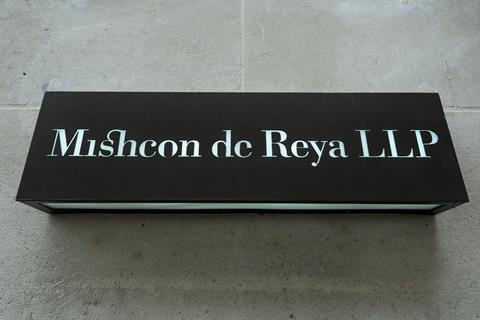Mishcon de Reya has been ordered to provide further information about assertions of privilege in a High Court claim over almost £3m of ‘potentially tainted’ cash it received from a client later found to have misappropriated millions from a property investment business.
The London firm is accused of ‘turning a blind eye’ to the source of £2.9m in fees paid by Edward Wojakovski, who wrongfully extracted around £13m from companies in the Tonstate Group of which he was a director.
Mishcon briefly represented Wojakovski in litigation brought by the Tonstate Group, which involved his former father-in-law and co-owner Arthur Matyas, who admitted also wrongfully extracting money from the group.
Eleven companies in the Tonstate Group, all now in liquidation, are suing Mishcon de Reya for the return of the payments, which they say ‘belonged in equity’ to them at the time they were made. They alternatively allege Mishcon received the payments with ‘actual and/or constructive knowledge’ that the money was the proceeds of Wojakovski’s ‘breaches of fiduciary duty’.
The claimants rely on a WhatsApp message said to have been sent by Mishcon’s former managing partner Kevin Gold to Wojakovski’s then wife in 2017, which said that money in a Bank of Singapore (BoS) account, from which Mishcon was paid, was ‘potentially tainted’.
They also rely on ‘the weaknesses of Mishcon’s customer due diligence processes and record-keeping’, said to be ‘serious shortcomings which Mishcon admitted’ to the Solicitors Regulation Authority in unrelated proceedings which led to a £232,500 fine last month.

Mishcon does not admit that any of the payments ‘originated from the extractions [from the Tonstate Group] or their traceable proceeds’ and says the firm was instructed that ‘all the monies in the BoS Account were [Wojakovski’s] family/personal monies’.
Gold, now Mishcon’s executive chair, ‘believed what [Wojakovski] told him to be true’ and was therefore ‘satisfied on the basis of those instructions that the funds in the BoS Account could properly be applied towards Mishcon’s anticipated fees’, the firm said in its written defence.
At a preliminary hearing today, Andrew Fulton QC for the claimants accused Mishcon of being ‘deliberately evasive’ in response to a request for further information about the ‘corroboration’ of the source of the funds given by Wojakovski’s brother. He also said in written submissions that Mishcon ‘make no secret of finding it convenient to be able to take refuge in their former client’s privilege’.
Justin Fenwick QC, for Mishcon, said the claimants’ criticisms were ‘completely unjustified and should not have been made’.
Sir Alastair Norris said Mishcon had not identified ‘which particular privilege is being claimed in relation to which document, nor do the responses so far provide a sufficient explanation for the privilege claimed’.
The judge ordered Mishcon to provide ‘further itemisation by defined categories – indeed, tightly-defined categories – not by individual document and to [provide] in relation to each such category the precise ground of privilege asserted’.
However, the claimants’ application to consolidate their claim against Mishcon with the case brought against Wojakovski by the Tonstate Group was dismissed. ‘Notwithstanding my view that, at some stage, these cases will have to be consolidated or managed together in order to produce consistent findings, I would accept … that it is too early to take that step,’ Norris ruled.


























